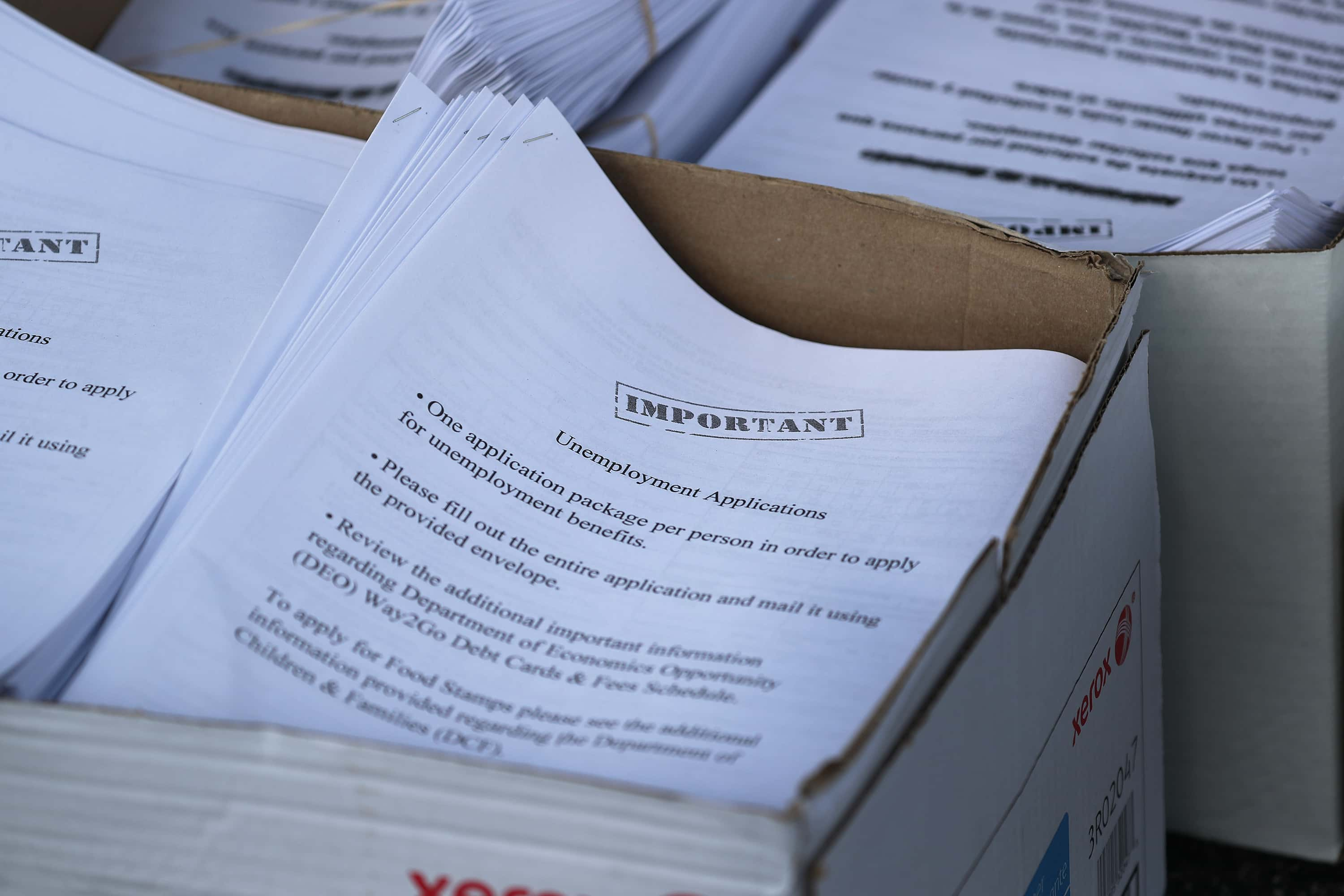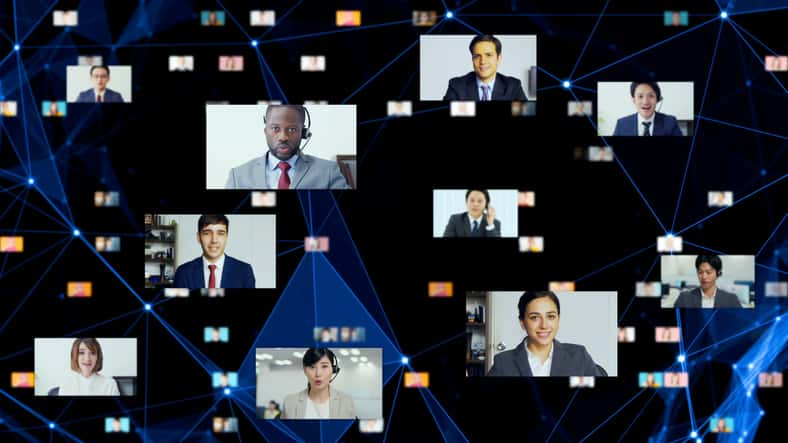One-third of job seekers will only attend virtual interviews until Covid-19 vaccine is released, says survey

In the months since the coronavirus pandemic wreaked havoc across the globe, the disruption it has caused in its wake is unfathomable. At the onset, the preventive guidelines enforced by governments forced many to abide by stay-at-home orders, while many businesses and employers switched to the remote working model. But it wasn't long until the pandemic's devastating effects seeped into the economy causing a recession that has been likened one too many times to the Great Depression of the 1920s. This was followed by employees being furloughed from their workplace, and filing for unemployment. In the US alone, as of July 9, first-time unemployment numbers have skyrocketed to 50M, according to Forbes.
With time, however, many have started to adjust to the reality of working from home in the long run. Amid the home confinement period, office workers have had to accept ditching the daily to and fro commute to working from their home offices, dining tables, couches and beds. While many cities and states have been enacting phases to start reopening post-lockdown despite the huge threat of the contagion that still looms over our heads, not every area of life has reversed to the 'business as usual' sitch. Analysts closely following the pandemic anticipate that the impact of Covid-19 on the American economy could last for years, including minimized salaries and eliminated positions in some industries.

But how exactly are employers and employees coping in the Covid-19 stricken world and what does it mean if you're in the market for new job opportunities? For one, the remote working model has shifted all operations to the online platform which means virtual interviews, video meetings and a tonne of correspondence over emails. For an in-depth look into how people are adapting to this new work-life, Zenefits, and HR software company that provides innovative and intuitive tools for small and mid-size businesses, survey over 1000 people, including over 200 hiring managers. The aim of the survey was to analyze their perspectives on virtual interviews, how they make candidates feel, how many prospective employees are willing to accept in-person interviews right now and the downside of conducting job interviews through digital platforms
Common and confident virtual interviews
While one in four Americans has faced unemployment or reduced income due to the pandemic, the same number of Americans have already attended a virtual job interview since the coronavirus pandemic began. 77 percent of people reported those interviews to be a positive virtual experience, but they could have possibly been more comfortable with the typical, in-person interview instead. In-person interviews come with a certain level of stress, as 58 percent of people have attested to in contrast the 42 percent that felt more stressed during virtual interviews. But 51 percent of respondents also identified feeling more confident in interviews when meeting face to face and 59 percent of surveyed people said they feel more comfortable negotiating their salary in a similar setting.
Adapting to the virtual culture also calls for some adjustments with interview etiquette. There is no hard and fast rule when it comes to professional meetings over online mediums but there still are some guidelines that people should take into consideration. In deciding how to organize their environment for their interviews, one in three respondents said they use their home office as a background, while one in five revealed they use their living room. What was more unlikely, however, was that 15 percent of people used a custom background for their interviews and 12 percent had their meeting in their bedroom instead.

In-person interviews in a pandemic
Social-distancing is one of the guidelines that many are strictly adhering to, but some people are more than willing to throw it aside if that means seeking a good job opportunity. 65 percent of respondents to the survey said they were willing to attend face-to-face interviews during the Covid-19 pandemic, though 80 percent of employees, as well as 76 percent of hiring managers, asserted that face masks should be mandatory in these settings. Meanwhile, more that one in three people (37 percent) divulged that they wouldn't attend an in-person interview until a Covid-19 vaccine is released.
62 percent of people agreed that all job interviews should be held remotely until the preventive guidelines related to the contagion are lifted. Still, some 87 percent of respondents said they would only attend an in-person interview amid the pandemic if it meant that they could potentially be able to secure their dream job and 85 percent of people would do the same if they were given the chance to earn a higher salary. Out of these people, one in ten said that they don't believe job candidates should wear face masks during the interviews.
From hiring managers’ perspectives
Conducting or participating in virtual interviews requires a bit more of a meticulous organization in comparison to an in-person setting, even if the job description hasn't changed as a result of Covid-19. In addition to ensuring all of the technology is set up properly in advance, it is equally crucial to set expectations straight up for candidates who may be new to the virtual medium. Prior to the Covid-19 pandemic, 59 percent of hiring managers reported conducting conventional, face-to-face interviews while 28 percent revealed they conducted a mix of in-person and remote interviews.

On the contrary, less than 14 percent of hiring managers conducted exclusively virtual interviews before the pandemic, although 58 percent expected to do so even after the precautions related to the virus we lifted. Despite 73 percent of hiring managers deeming virtual interviews to be a feasible alternative for interviewing in general, more than 1 in 3 managers weren't willing to adopt a virtual experience for their candidate during the interview process.
Interview expectations during Covid-19
Out of the 62 percent hiring managers who conducted a job interview during the Covid-19 pandemic, 88 percent confirmed that those interviews were virtual, while 12 percent of hiring managers maintained the traditional in-person interview structure, instead. 80 percent of hiring managers deemed virtual interviews as a positive experience. 72 percent of interviews were held over Zoom, which has also been the commonly utilized teleconferencing platform; followed by Skype (43 percent) and Google Hangouts (27 percent). With regard to setting the tone of their interview, 57 percent of hiring managers revealed that they used their home office as a background for the interview, while 17 percent opted for a custom background instead.
Pros and cons of virtual interviews
The general consensus when it comes to virtual interviews, according to hiring managers, is that they are a positive experience. However, it does have its shortcomings, especially where technology is concerned. While 64 percent of respondents said that online interviews offer the added bonus of flexibility, 59 percent said that this method helps protect the health of both the managers and the candidate. Nearly 55 percent of survey people also asserted that it is ultimately also saving the company's money. However, hiring managers have cited several drawbacks from virtual interviews.

Most commonly, about 60 percent of the complaints centered on connectivity issues, closely followed by 55 percent blaming webcam issues and 51 percent citing audio issues. Additionally, 50 percent of the hiring manager said that they were unable to gauge or assess a candidate through online interaction. On another note, some hiring managers also expressed their concerns about privacy issues (26 percent), potential fraud (16 percent) and response to time limitations (15 percent).
Adapting to the future of job interviews
It was clear that adjusting to a new means of interviewing during Covid-19 is crucial for hiring managers, but this does not indicate a clear future for job interviews, post-Covid. While some hiring managers expect to transition back to traditional interview formation in the next couple of months, others expect to be resorting to the virtual medium for at least another seven months, or more. The digital interview experience has mostly garnered positive feedback, but there are still more challenges to take into consideration, along with any added discomforts that future candidates could go through.
Methodology and limitations

Zenefits surveyed over 1,018 employed people via Amazon Mechanical Turk about virtual interviews during the Covid-19 pandemic. Of the 1,018 participants, 810 were employees, and 208 identified as hiring managers. Out of the employees, 45 percent identified as female and 54 percent said they were male. The ages of the respondents ranged from 23 to 61, with an average of 37 and a standard deviation of 10 years. Out of the hiring managers, 43 percent identified as female, and 57 percent said they were male. The ages of the respondents ranged from 24 to 63, with an average of 37 and a standard deviation of 10 years. The survey used an attention-check question to identify and disqualify respondents who failed to read questions and answers in their entirety. The main limitation of the study is its reliance on self-reported responses which include issues such as exaggeration, selective memory, telescoping, attribution and recency bias.










